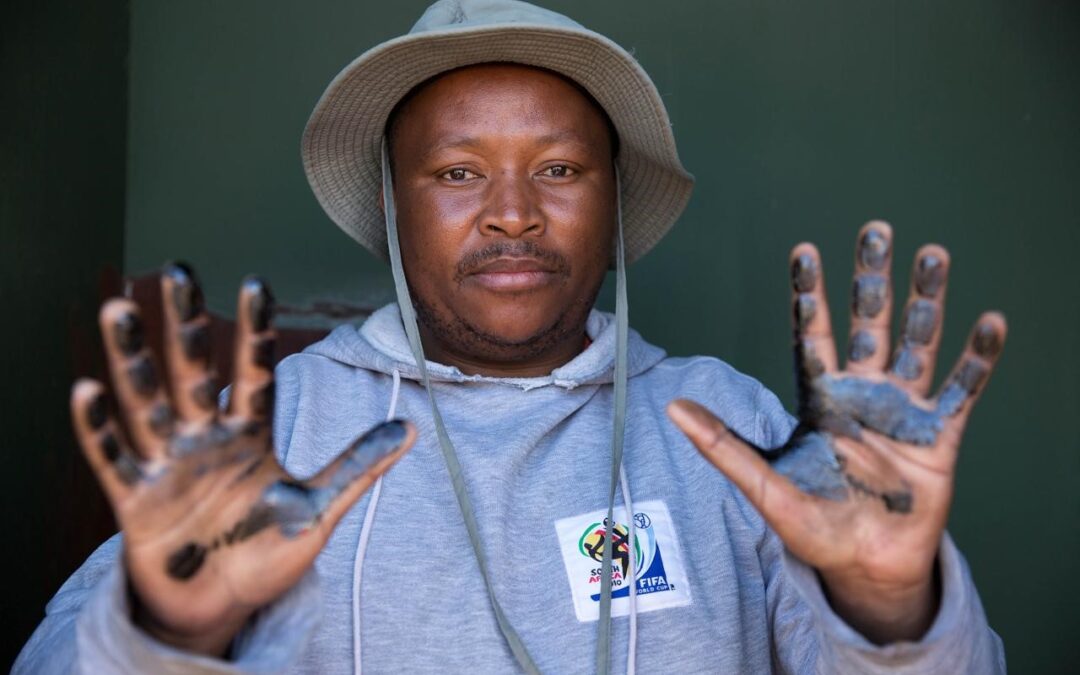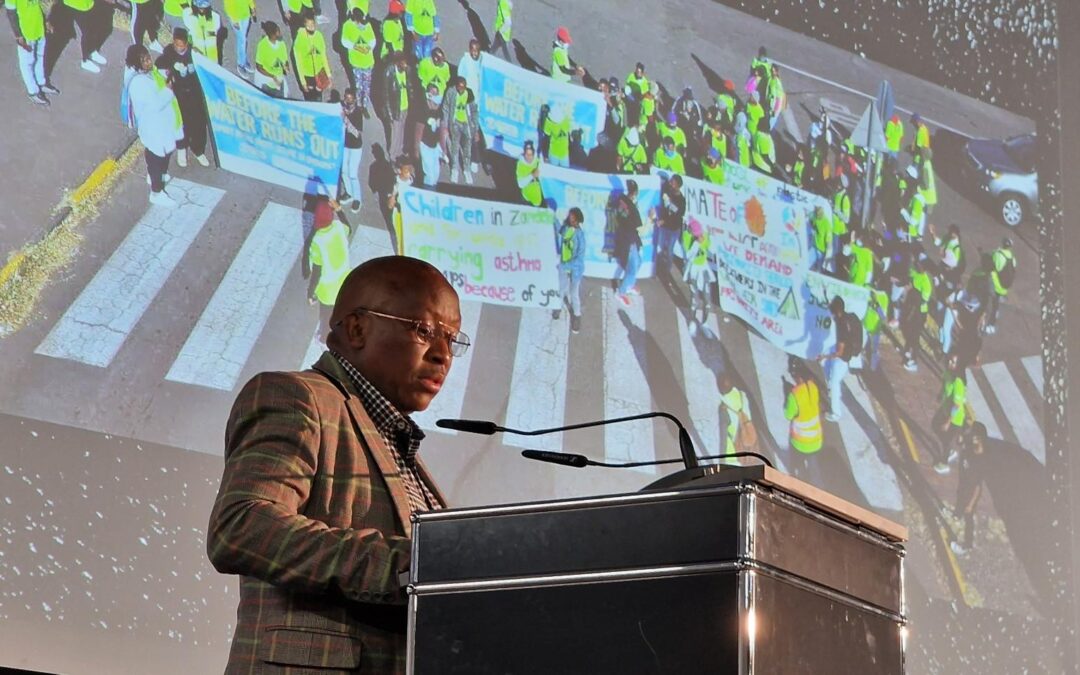
Rico Euripidou
As we surpass 35 000 COVID-19 deaths amid a terrifying second wave of the pandemic we need to begin an honest discussion to define and reflect on the bigger picture that puts our societies health at risk. This includes environmental health factors that are fundamental to a healthy community environment.
Poor air quality from industrial pollution makes us more vulnerable to a variety of health problems including pandemics such as COVID-19. Air pollution in our industrial economy drives climate change. Climate change and pandemics interact to worsen the impact of each, and climate change is both a huge threat and opportunity to strengthen environmental and public health. That is why improving air pollution must be central to a post-corona just transition!
The satellite imagery showing massive declines in air pollution across Europe, China and the Highveld in South Africa during our national lockdowns was a testament to just how unsustainable to health our “normal economies” really are. Similarly, they also demonstrated to us how quickly it is possible to achieve massive global reductions in air pollution (and by association climate change gases) if there is a political will to do so. Sadly, more recent satellite imagery shows us how quickly we can bounce back to a dirty reality if air pollution emissions are not meaningfully addressed.
As more research investigating the link between air pollution and the spread of Covid-19 becomes available there appears to be growing evidence that people living in polluted cities are more at risk from the coronavirus. There are good reasons to suspect that air pollution worsens covid-19. Many health studies investigating the impacts of air pollution on health conclusively find that air pollution is known to cause and exacerbate a variety of long term health conditions affecting the respiratory system (the lungs) – impairing our capacity to fight off lung infections, the cardiovascular systems (the heart and blood systems) and also many other cancer health outcomes.
A recent study hot off the press published in the health science journal Cardiovascular Research takes a step further and estimates the proportion of COVID-19 deaths due to air pollution. The authors estimate that long-term exposure to air pollution generated by human activity is linked to about 27 per cent of COVID-19-related deaths in East Asia and 15 per cent mortality worldwide. They state that these deaths could largely have been prevented if better air quality regulations were in place.
One of the study co-authors, Prof. Münzel from Johannes Gutenberg University and the German Centre for Cardiovascular Research, was quoted as saying:
“When people inhale polluted air, the very small polluting particles, the PM2.5, migrate from the lungs to the blood and blood vessels, causing inflammation and severe oxidative stress, which is an imbalance between free radicals and oxidants in the body that normally repair damage to cells. This causes damage to the inner lining of arteries, the endothelium, and leads to the narrowing and stiffening of the arteries. The COVID-19 virus also enters the body via the lungs, causing similar damage to blood vessels, and it is now considered to be an endothelial disease”.
He goes on to say that:
“If both long-term exposure to air pollution and infection with the COVID-19 virus come together then we have an additive adverse effect on health, particularly with respect to the heart and blood vessels, which leads to greater vulnerability and less resilience to COVID-19. If you already have heart disease, then air pollution and coronavirus infection will cause trouble that can lead to heart attacks, heart failure and stroke.”
The results suggest the potential for substantial benefits from reducing air pollution exposure, even at relatively low levels concluding that… “a lesson from our environmental perspective of the COVID-19 pandemic is that the quest for effective policies to reduce anthropogenic emissions, which cause both air pollution and climate change, needs to be accelerated. The pandemic ends with the vaccination of the population or with herd immunity through extensive infection of the population. However, there are no vaccines against poor air quality and climate change. The remedy is to mitigate emissions. The transition to a green economy with clean, renewable energy sources will further both environmental and public health locally through improved air quality and globally by limiting climate change.”
What is the relevance for us here in South Africa? Eskom our biggest industrial polluter has just submitted another round of applications to the National Air Quality Officer (NAQO), to either further delay compliance with the air quality laws that govern their emissions, the Minimum Emission Standards (MES), and in some cases avoid compliance altogether, for 14 of their 15 coal-fired power stations. groundWork warned the environment ministry (the DEFF) this would happen over 10 years ago!
Worryingly this erosion of our weak regulatory governance is not happening in isolation. Other mega polluting industries such as SASOL, the oil refineries (ENGEN, SAPREF, NATREF, and CALEX) have submitted similar applications to be exempt of these air quality laws as have other large industries such as cement plants and pulp and paper mills.
Although we may not feel empowered to do so we do effectively have a choice to make as we formulate our national response to the Covid-19 pandemic along with the intertwined social, political and economic crisis it has spawned. We can choose the path we have already come on and prop up the old structures and systems that have caused the crisis in the first place and have led us to massive inequality in our health systems as well as systemic unemployment and labour exploitation in our country, or we can decide to choose a different path. The different path we choose can lead to an unprecedented set of opportunities to forge a just transition to equitable, resilient societies that provide decent work for all, universal health care, and contribute to a sustainable and clean energy system and a ultimately a healthy climate.
For our civilization to survive and thrive, we must choose this second path and change systems that place profit over ecological sustainability, health, and wellbeing. We must build structures that benefit all people, especially the vulnerable and the poor. As part of this effort, we must recognize and address the political, social, and economic factors that govern how health or illnesses move through our communities. As many around the world rise up against systemic racism and discrimination, we must also forge a broad, interconnected agenda for change that fosters health equity, ecological sustainability, and social justice.
Rico Euripidou is an environmental and public health specialist at groundWork, Friends of the Earth SA
This opinion piece was published in the Cape Times, Mercury and Pretoria News. A stand-alone version of the opinion piece is available here.



